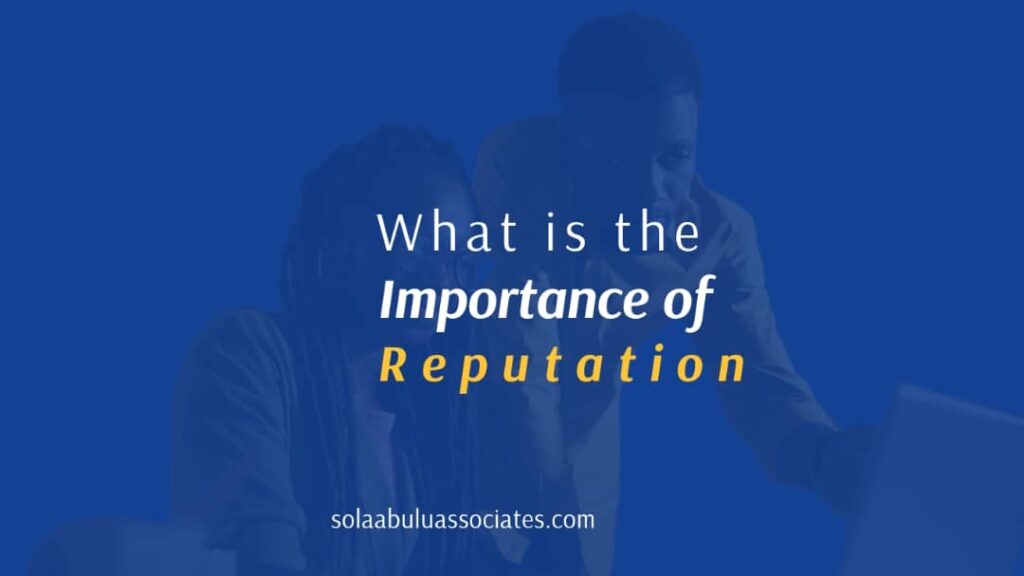What is the importance of reputation?

Reputation embodies a brand’s performance, behaviour and how they come across to the public, (their audience, consumers, stakeholders and investors). It is formed by an aggregation of all the narratives around your brand. What does the media say about you? What type of narratives do your employees have of you and how do your consumers perceive you? All of these forms a reputation for your brand which could be either positive or negative.
It is a currency to be protected and requires investment because every piece of information or messaging that is associated with your brand, whether told by you or told by others can build or break trust. Every business, institution, organization or entity needs to stay on-top of their game to ensure that their performance and behavior strengthens how people see them and contributes to their business or organizational growth.
Many brands make the mistake of focusing on reputation management only in times of issues and crisis management. Brands need to adopt a proactive approach to building and strengthening their reputation without waiting until they need a good reputation to salvage them in a crisis. Businesses and organizations with a good reputation can de-escalate negative sentiments during a crisis more easily. This means everything your brand does from its messaging, performance, engagements and sometimes, silence on some issues shapes the brand perception and ultimately, its reputation.
Click here to watch our recorded webinar on “The Value of Proactive Issues and Reputation Management: A Business Leader’s Perspective”. You will find it very insightful and educational.
If you need to undergo a CPDSO accredited training to understand why reputation is the most critical asset to protect in issues and crisis management, then you need to register for our upcoming Issues, Crisis and Reputation Management Course happening on 24th April. Register your interest here.
How to invest in your reputation
- Own your narrative: Communications professionals and business owners/leaders need to stay on top of what is being said about their brands through active listening, responding to and engaging with users of their products and services to shape perception.
- Ensure the stories told about your brand do not raise negative sentiments: You can influence your brand perception to be either positive or negative. However, negative sentiments drive the wrong perception about your brand that can damage your reputation. One of the ways to ensure that your brand generates positive sentiments only is by paying attention to the quality of your product and service in the market.
- By utilizing public relations, businesses and organizations can foster trust, show credibility and enhance their reputation. Therefore, to invest in your reputation, pay attention to the external narrative around your brand and also use internal communication to keep employees engaged as voluntary goodwill ambassadors for the brand.
We are pleased to announce that enrolment is now open into the 3rd Cohort of the CPDSO-Accredited Sola Abulu & Associates (SA&A) Issues, Crisis & Reputation Management Course. This is for leaders and professionals accountable for managing issues, crisis and reputation of a business, brand, organization and entity. This course is for you if you are a business leader, executive officer, human resource leader or communications/public relations professional.
Click here to sign up now and secure a spot with our ongoing discount.
Click here to check out other online courses
Download our 2025 Training brochure here
………………………
Sola Abulu & Associates is a strategy and communications consulting and training firm committed to enabling businesses, brands and organizations to achieve their objectives through strategic communications, organizational effectiveness and reputation risk management
Chat with us for more information on our courses.
